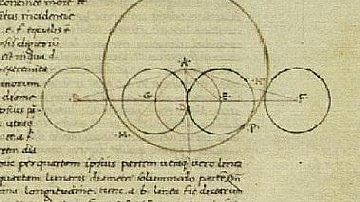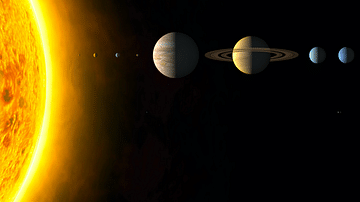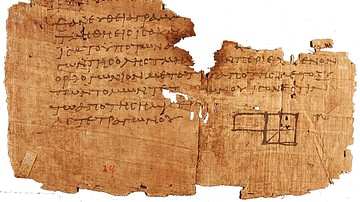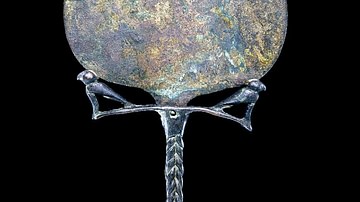Search
Remove Ads
Advertisement
Summary 
Loading AI-generated summary based on World History Encyclopedia articles ...
Search Results

Article
Jesuit Influence on Post-medieval Chinese Astronomy
Ancient China had seen little Western contact before the 16th century CE, the language, culture and science all being allowed to develop independently of foreign influence. By the time European Jesuit missionaries arrived in the 16th century...

Definition
Greek Astronomy
Ancient Greek astronomy was the study of the universe to understand how it functioned and why apart from the established theistic model that claimed all things were ordered and maintained by the gods. Ancient Greek astronomers relied on observation...

Article
Astronomy in the Scientific Revolution
The astronomers of the Scientific Revolution rejected long-held theories of ancient thinkers like Claudius Ptolemy and Aristotle and instead set out to systematically observe the heavens in order to create a model of the universe that fit...

Definition
Science
The term science comes from the Latin word scientia, meaning "knowledge". It can be defined as a systematic attempt to discover, by means of observation and reasoning, particular facts about the world, and to establish laws connecting facts...

Definition
Roman Science
The Romans assimilated earlier Greek science for their own purposes, evaluating and then accepting or rejecting that which was most useful, much as they did in other fields such as warfare, art, and theatre. This assimilation of Greek thought...

Definition
Mesopotamian Science and Technology
Mesopotamian science and technology developed during the Uruk Period (4100-2900 BCE) and Early Dynastic Period (2900-1750 BCE) of the Sumerian culture of southern Mesopotamia. The foundation of future Mesopotamian advances in scientific/technological...

Article
Index of Prohibited Books
The Index of Prohibited Books (Index Librorum Prohibitorum) was a list of written works condemned as heretical or injurious to the Christian faith by the Catholic Church at the Council of Trent in 1563. It remained in effect until 1966 when...

Definition
Ancient Greek Science
Ancient Greek science is a modern term for the application of systematic inquiry into the individual, the world, and the universe, which began in Ionia in the 6th century BCE with Thales of Miletus (l. c. 585 BCE) and continued through the...

Article
12 Best Historical Fiction Books to Read
The AHE team live and breathe history, but we all have our favourite historical periods and authors. We thought it would be fun for each of us to nominate one or two books that we would recommend for the general reader as well as high school...

Article
Ancient Egyptian Science & Technology
The great temples and monuments of ancient Egypt continue to fascinate and amaze people in the modern day. The sheer size and scope of structures like the Great Pyramid at Giza or the Temple of Amun at Karnak or the Colossi of Memnon are...